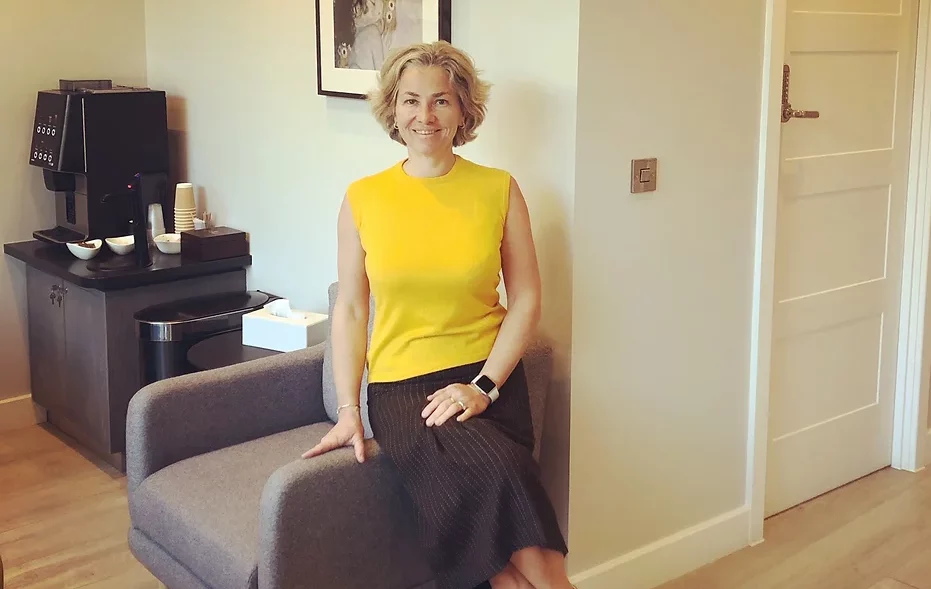Endometriosis
Belgravia | Dulwich
Private Endometriosis Care in London: How Grosvenor Gardens Healthcare Can Help
If you suspect you may have endometriosis or have already been diagnosed, Grosvenor Gardens Healthcare provides compassionate, professional care in a private setting. Our experienced gynaecologists are here to help you understand your condition, explore treatment options, and develop a personalised management plan to improve your quality of life.
Why Choose Grosvenor Gardens Healthcare?
- Expert Gynaecologists: Our team has extensive experience in diagnosing and treating endometriosis, ensuring you receive specialist care and guidance.
- Individualised Treatment Plans: We recognise every patient is unique. We tailor your treatment to address your specific symptoms, lifestyle, and long-term goals.
- State-of-the-Art Facilities: Our modern clinics in Belgravia and Dulwich, London offers advanced diagnostic tools and treatment options, all in a welcoming environment.
- Compassionate Support: Endometriosis can be both physically and emotionally challenging. We provide ongoing support, from diagnosis through to treatment and follow-up care.
- Convenient Appointment Scheduling: We aim to offer prompt, flexible appointments to suit your schedule.
Understanding Endometriosis
Endometriosis is a condition where tissue similar to the lining of the uterus (the endometrium) grows outside the womb, often on organs such as the ovaries, fallopian tubes, or around the pelvic area. These growths can thicken and bleed in line with the menstrual cycle, causing inflammation and pain.
Common Symptoms
- Pelvic Pain & Cramping: Often worsening during or around your period.
- Painful Periods (Dysmenorrhoea): More severe than typical menstrual discomfort.
- Pain During Intercourse: Discomfort or deep pelvic pain during or after sex.
- Fertility Issues: Difficulty conceiving can sometimes be related to endometriosis.
- Gastrointestinal Symptoms: Some patients experience bloating, diarrhoea, or constipation, particularly around their period.
It’s important to remember that symptoms vary widely. Some individuals experience intense pain, while others have mild or no noticeable symptoms.
Diagnosing Endometriosis
- Initial Consultation: A detailed medical history and discussion of symptoms help us assess whether endometriosis might be a factor.
- Physical Examination: A pelvic exam can sometimes detect cysts or scarring caused by endometriosis.
- Ultrasound Scan or Imaging: An ultrasound (transvaginal or abdominal) may help identify endometriomas (ovarian cysts) or other abnormalities.
- Laparoscopy: In some cases, a minimally invasive surgical procedure (laparoscopy) is needed for a definitive diagnosis and, if possible, treatment of endometriosis lesions.
Treatment Options
Pain Management & Medication
- Hormonal Treatments: The contraceptive pill, hormonal coils (IUDs), or other hormone-based medications may help reduce pain and slow the growth of endometrial tissue.
- Pain Relief Medications: Over-the-counter or prescription painkillers can help manage discomfort.
Surgical Treatment
- Laparoscopic Surgery: This procedure can remove or destroy endometriotic tissue, helping to alleviate symptoms and potentially improve fertility.
- Hysterectomy: In severe cases where other treatments haven’t helped, a hysterectomy (removal of the uterus) may be considered, usually as a last resort.
Lifestyle & Complementary Approaches
- Diet & Exercise: A balanced diet, regular exercise, and stress management can complement medical treatments.
- Physiotherapy & Counselling: Pelvic physiotherapy and emotional support can also be beneficial for some patients.
Book Your Private Endometriosis Consultation in London
At Grosvenor Gardens Healthcare, we understand the physical and emotional challenges of endometriosis. Our goal is to provide professional care, clear guidance, and continuous support—helping you find relief and maintain your wellbeing.
Contact us today to schedule your private endometriosis consultation or to learn more about our gynaecological services.
Other Services we offer:
Book With Us Today
Step into a world of comprehensive and compassionate healthcare. Book now with Grosvenor Gardens Healthcare – where everyone is heard, understood, and cared for with excellence and empathy.
Pricing & Fees
Discover affordable, transparent gynaecological care at Grosvenor Gardens Healthcare. Explore our competitive fees and pricing – quality care, tailored to every budget. Make an informed choice for your health and wellness today.

Every member of our team is committed to delivering personalised, attentive care, ensuring that your experience at Grosvenor Gardens Healthcare is both comprehensive and uniquely tailored to your individual health needs. Join us in a journey towards optimal health and wellness, where your care is our utmost priority.
